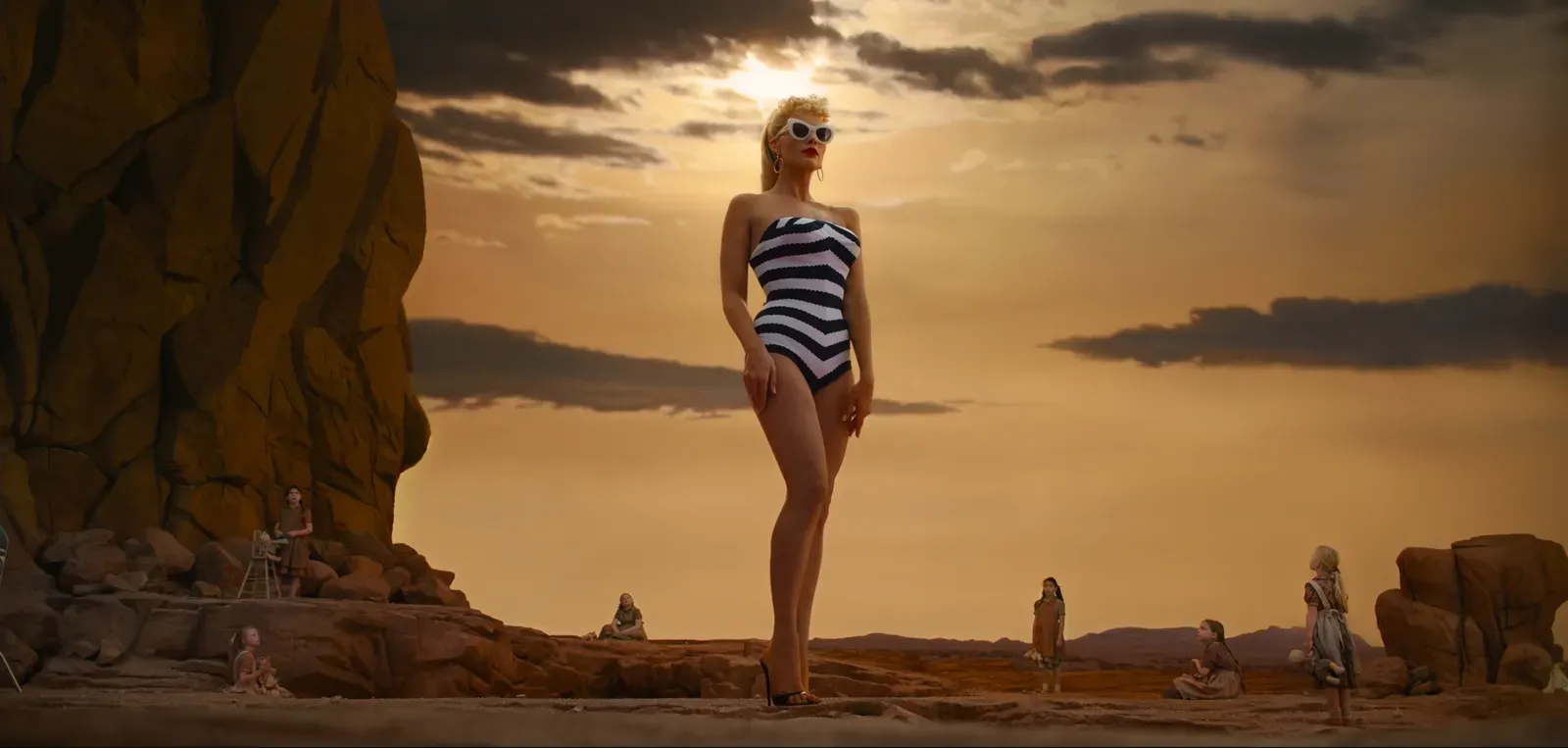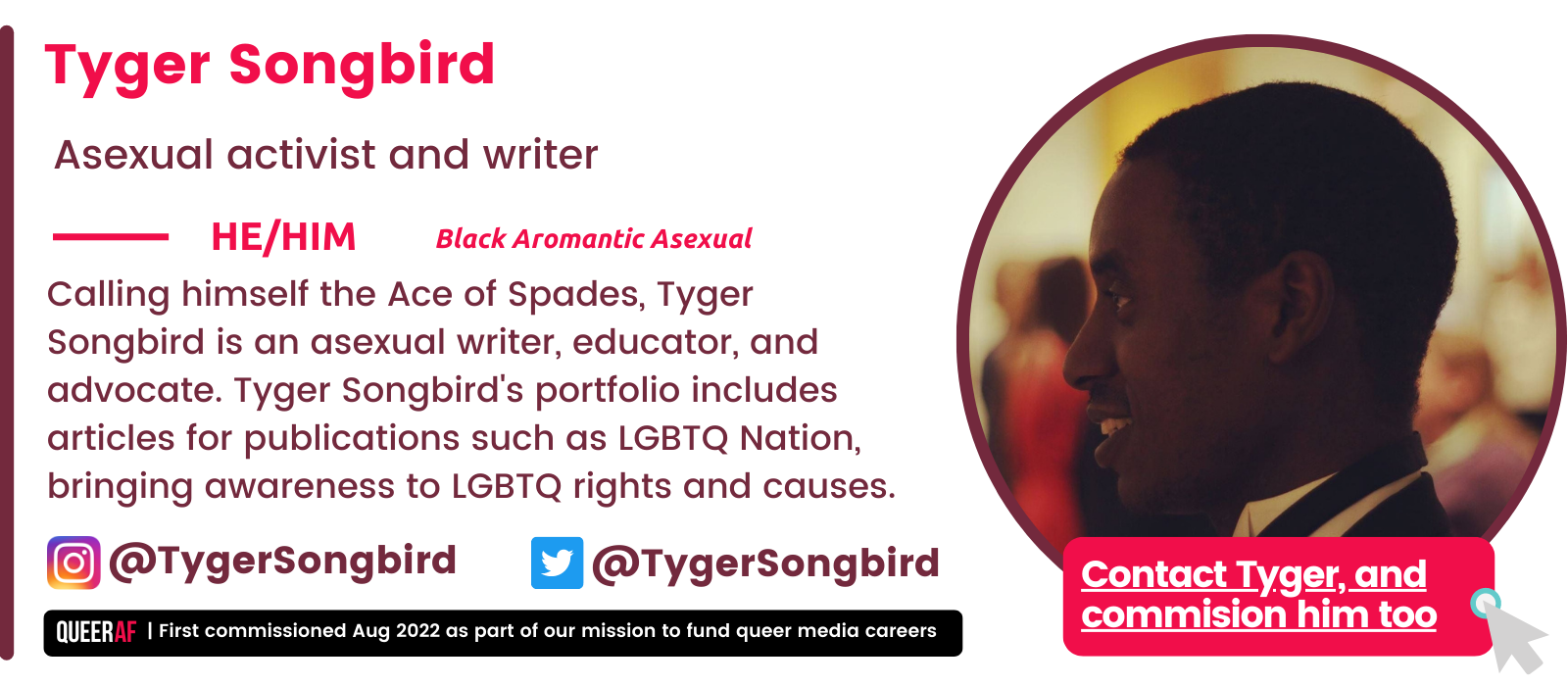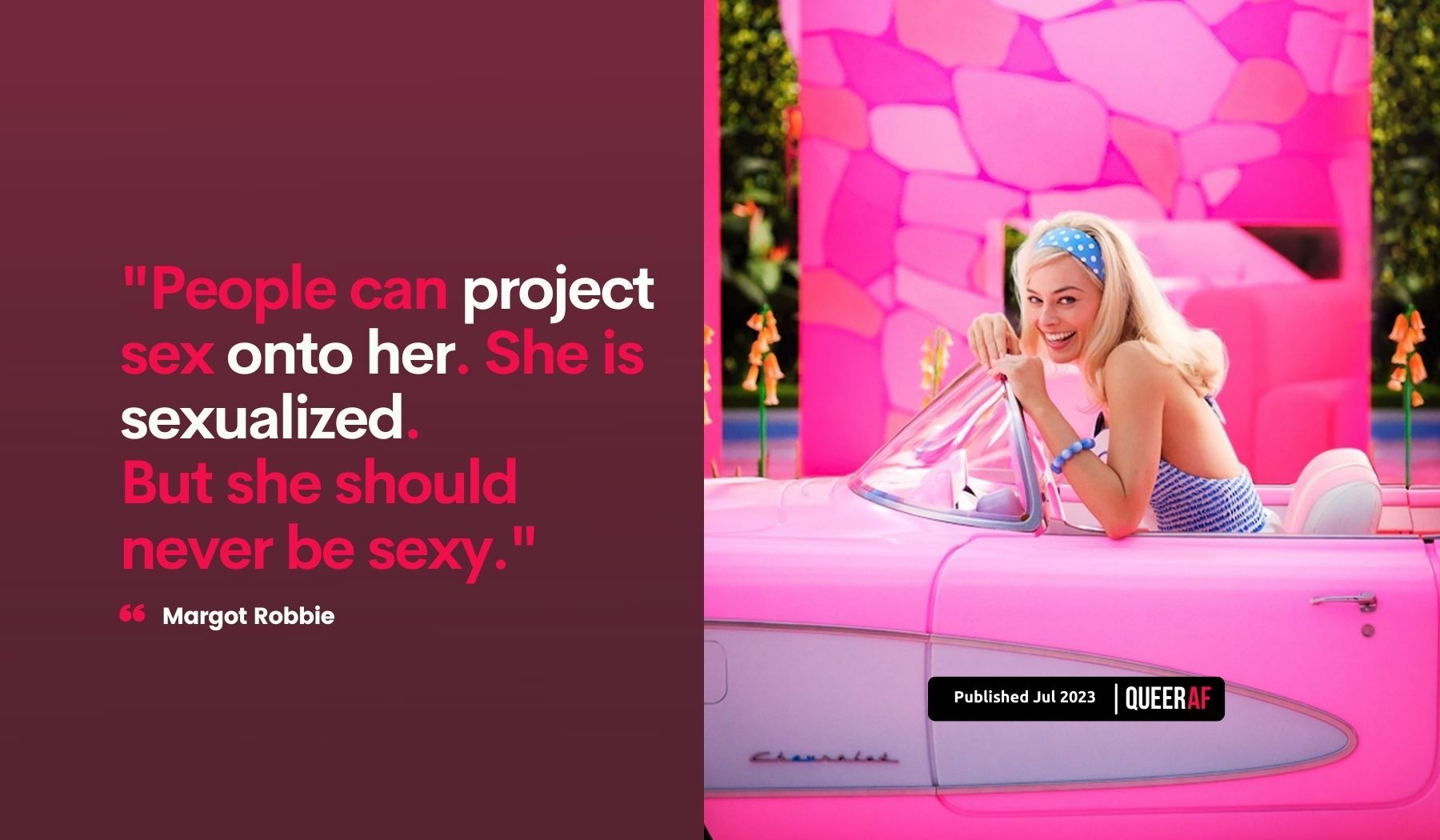
Barbara Millicent Roberts or, as you know her – Barbie. She’s an icon to some asexual people. But why?
In the Barbie film starring Margot Robbie and directed by Greta Gerwig, her character shows a distinct lack of sexual interest.
In May, Margot Robbie did an interview with Vogue, and since multiple other outlets, confirming as much.
Robbie has been posing that as a plastic doll could Barbie even feel sexual desire?
“No, I don’t think she could,” Robbie told Vogue. “She is sexualized. But she should never be sexy. People can project sex onto her. Yes, she can wear a short skirt, but because it’s fun and pink. Not because she wanted you to see her butt.”
Margot Robbie spoke to something many aces have had to deal with themselves –— people projecting sexuality onto Barbie, despite not having any inclination towards sex.
This isn’t the first Hollywood character to see the same treatment. Jessica Rabbit is another famous example. Then, of course, there is also Marilyn Monroe's autobiography showing her lack of interest in sex.
Like all of these examples we will never know how Barbie experiences her sexuality - she is a character in a film. Nor should we give her or anyone a concrete label on their behalf - that's Robbie's point.
But the parallels and reactions to this conversation are interesting to observe.
When I first raised Robbie's remarks in the context of asexual experiences a Twitter storm began.
I posed that the only reason people struggle to accept Barbie (and Jessica Rabbit) may be asexual is because they desire them to be sexual, regardless of whether they are or not.

People took issue with me saying Barbie could be asexual
The reaction only buttressed my claim.
Instead of bringing up Barbie’s characterization or personality traits, they pointed to Barbie’s physical appearance and wardrobe. They said Barbie “doesn’t look asexual” due to being conventionally attractive.
Barbie and Jessica Rabbit do not display any interest in sex as characters.
However, because everyone else views them as sexual due to their physical attractiveness, they are robbed of the ability to be asexual.
This is an example of rape culture – where sexual violence against women is normalized and excused in the media and popular culture.
Asexual people are not exempt from rape culture
Aces are told we have to look a certain way to be considered a “valid” asexual and that we are being a “tease” if we dare dress or present in a way that could be regarded as “attractive.”.
While there have been many calls in recent years to highlight the problem of slut-shaming in society, society still denigrates people who either have certain prominent physical features or dress in a particular way.
Words such as sl*t or wh**e are often hurled as insults against people to shame self-expression through dress.
Barbie and Jessica Rabbit both challenge society’s false notion that someone who dresses in an “attractive” and “sexy” manner must simply do it for the attention of others to obtain sex from them.
Barbie is an asexual icon because she shows how exciting, fun and fabulous life can be – regardless of whether you do or don’t have any sexual attraction.

Get the Queer Gaze in your inbox each week with our free weekly newsletter or pitch to write an edition for us now.
The idea is simple.
Support asexual and queer creatives to get into the newsroom - and then help them change it.
One of the most significant barriers to starting a media career is getting those first and early commissions. We deliver that to our creatives, while you get award-winning content from fresh marginalised voices.
We ask every creative to rate our process. 90% gave us a perfect score on our communication and approach. The retro, our unique way of editing their work, has an average rating is 9.8/10.
Our approach is award-winning and industry recognised across multiple platforms, including our newsletter and podcast scheme - but we can't do it without you.

We believe there’s a better way to be seen, heard and celebrated. Join us to change the media for good.










